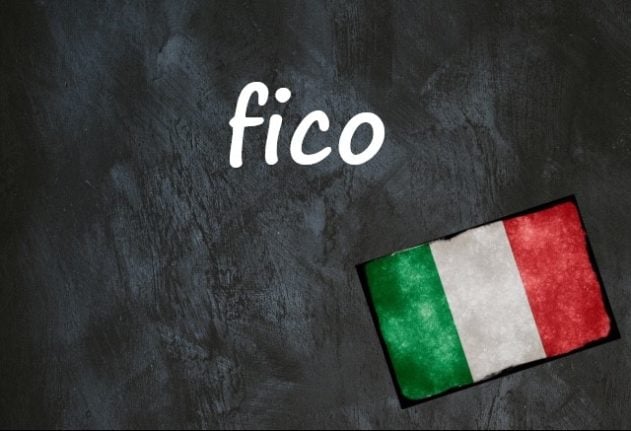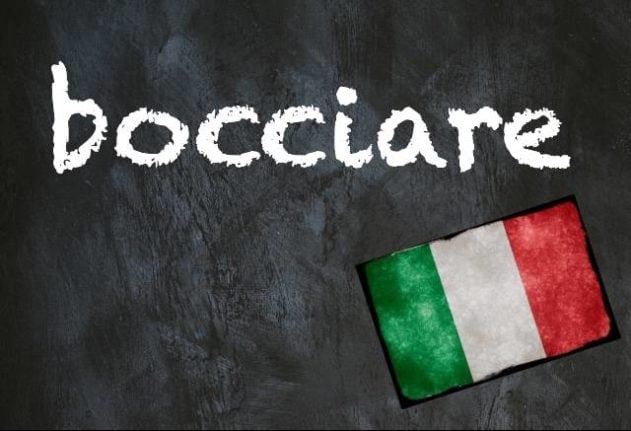I don’t know about you, but I have a thing for figs. Before I came to Italy I’d only encountered the dried kind, sticky and far too sugary; but since moving here the juicy, dusky purple, fresh ones have become one of summer’s greatest delights.
I love them chopped up with fresh ricotta or cold and fragrant in gelato; and I especially love the broad fig leaves that grow wild by Italy’s roadsides or out of its walls, and which when warm smell headily of figs even if they’re not in fruit.
But I’m not here to talk about figs all day (though believe me I could).
Yes, fico (pronounced ‘fee-ko’) is the Italian word for ‘fig’. But in colloquial Italian, the word has another meaning: ‘cool’.
È il film più fico dell’anno.
It’s the coolest film of the year.
Che fico quel vestito!
That dress is so cool!
Cercavo di sembrare fico per impressionarti.
I was trying to act cool to impress you.

Incidentally it’s also the surname of Italy’s speaker of the lower house of parliament, Roberto Fico, who I’d love to see Google Translate rechristen “Cool Robert”.
Fico applies to things, situations but most of all, to people. If you call someone un fico (literally, ‘a fig’) you mean they’re someone really cool.
Il tuo amico è un gran fico.
Your friend is such a cool guy.
Just be aware that there can be a subtext to calling someone un fico: it might imply that you find them attractive – like describing them as a ‘hottie’.
And an even bigger word of caution goes for the feminine form of the word, fica. It’s a slang term for a woman’s private parts and an extremely vulgar way to describe a woman herself.
In fact, fare la fica (‘doing the fig’) has been an offensive hand gesture since Dante’s time: it involves forming a fist and poking your thumb between your middle and index fingers, for reasons best left to the imagination.
One variation you should feel free to use, however, is figo: it’s a regional variation of fico and means exactly the same thing. Che figo!

Do you have a favourite Italian word you’d like us to feature? If so, please email us with your suggestion.




 Please whitelist us to continue reading.
Please whitelist us to continue reading.
As long as you remember to say fico and not fica!
Sono irlandese.Sono appassionata della lingua e della cultura italiana.Mi piace molto questo sito.È informativo, interessante,utile e lo raccomando senz’altro.Non vedo l’ora di ritornare in Italia al più presto possibile. Frances O’Brien